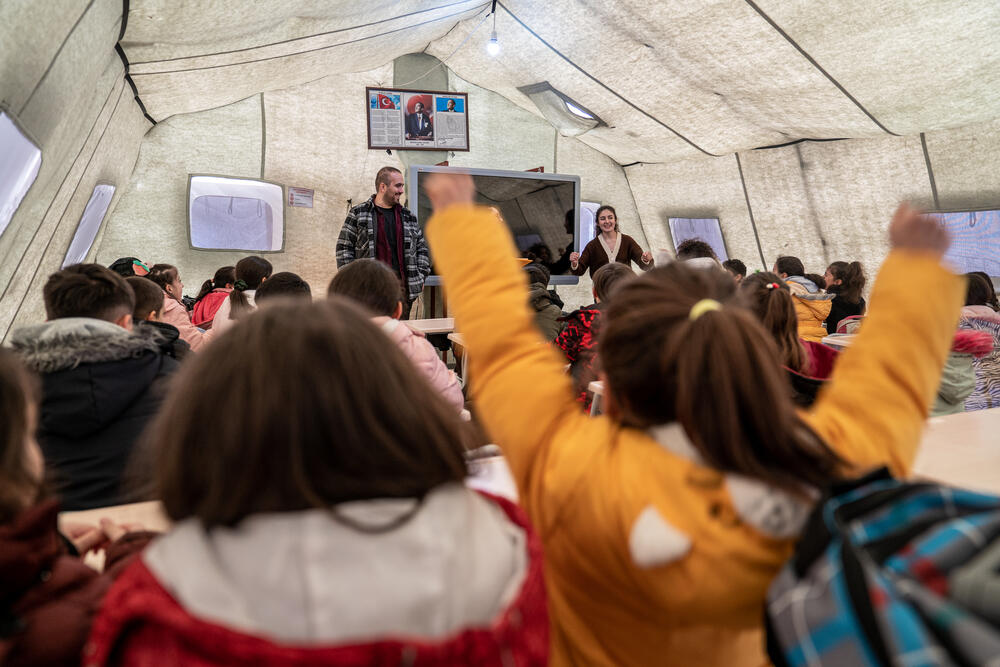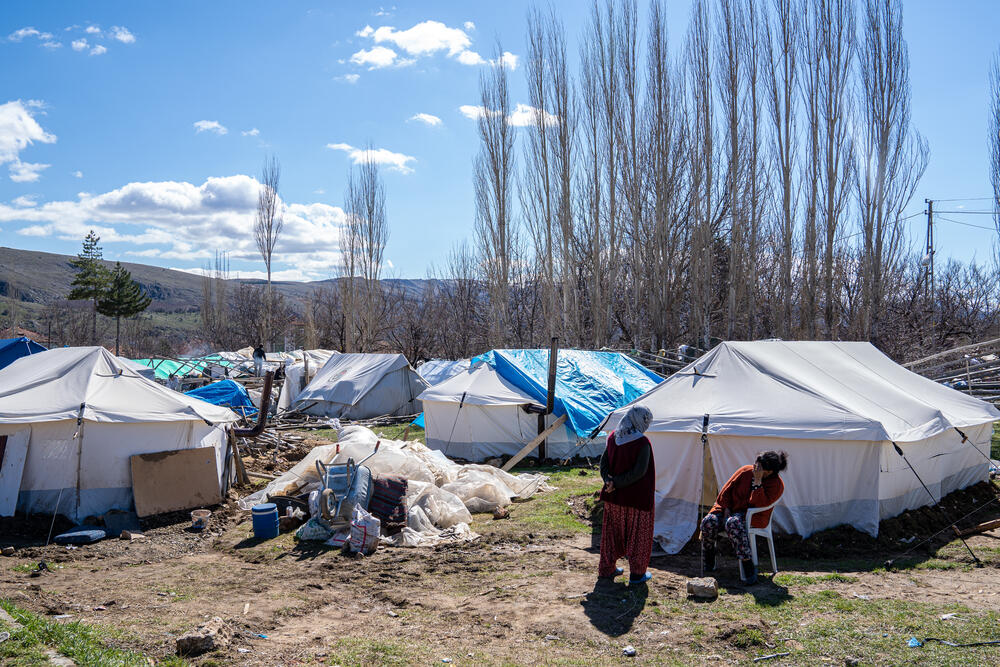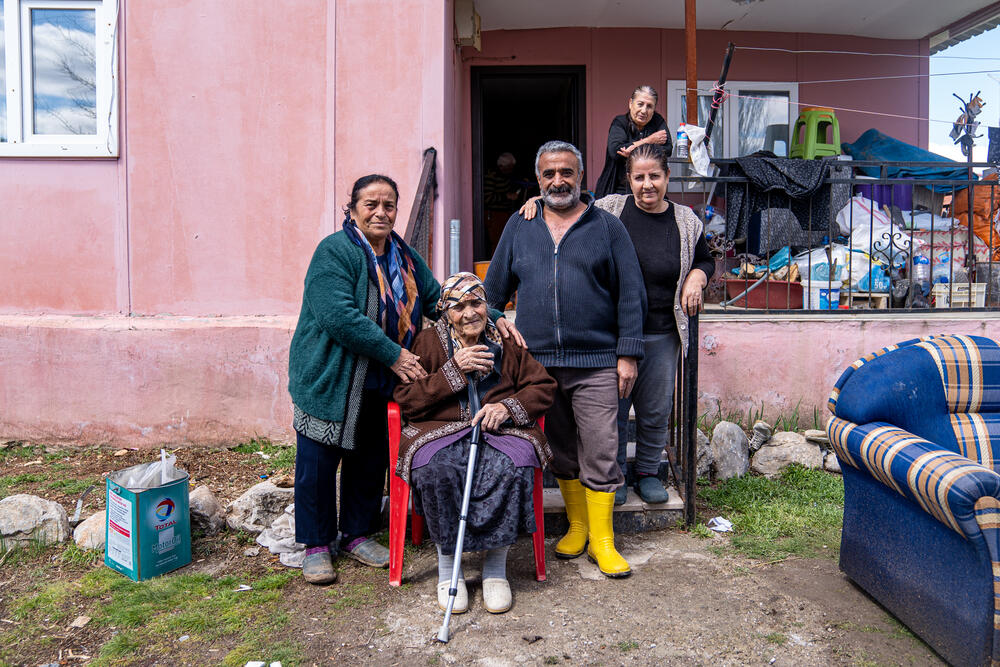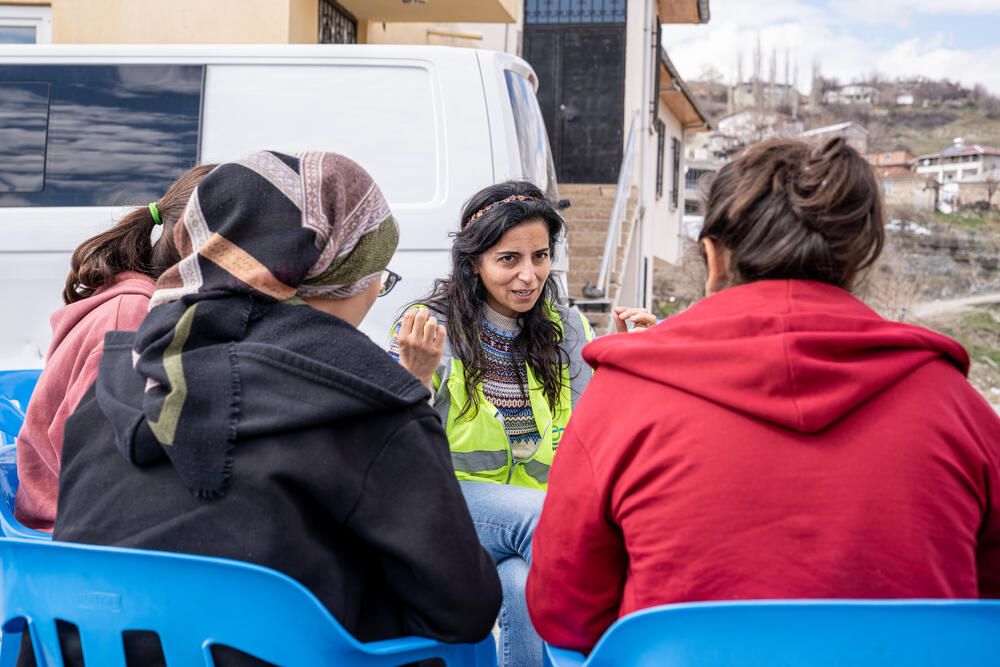Türkiye earthquakes: When homes become monsters
In Türkiye, the consequences of the devastating 6 February earthquakes are all too visible – destroyed homes, makeshift camps and widespread rebuilding efforts. With the coming of spring, heavy rain is now adding to this with flooding.
However, for many survivors, the earthquakes have also led to less visible consequences.
Responding to a mental health crisis, Médecins Sans Frontières / Doctors Without Borders (MSF) is supporting local organisations in Türkiye to provide psychosocial support as people try to rebuild their lives.
In the days after the Syria-Türkiye earthquakes struck, people would wait outside what remained of their homes while search and rescue teams tried to find people in the rubble. To add to the trauma of these early stages, people would have to identify every dead body that was pulled from the debris, checking whether it was their loved one.
As of early April, more than 50,300 people have been killed by the earthquakes in Türkiye alone.
Survival instinct
“Despite the problematic hygiene conditions and sometimes unfavourable weather conditions, most people are still too scared to enter buildings,” says Nazlı Sinem Koytak, a psychologist for İmece İnisiyatifi, a local NGO supported by MSF.
“They don’t feel safe. People are still outdoors out of survival instinct.”
Essential mental health care, thanks to your support
The generosity of people like you means expert MSF medical teams can deliver expert mental health care to the people most in need across the world.
MSF is supporting local organisations – İmece İnisiyatifi and Maya Vakfi – to provide psychosocial support to people in hard-hit areas including Adıyaman, Malatya, Hatay and Kahramanmaras provinces.
As of 24 March, this work has reached more than 7,500 people through individual and group mental health consultations.
Mental health workers encourage people to share their emotions, stories, and challenges, letting them know their feelings are normal given what they’ve been through. Group sessions build a bond among participants, bringing people together so they can be there to support each other during difficult moments.
Aftershocks are still happening daily, and people constantly relive past experiences in their minds and believe another disaster could happen.
“In one of the villages, the participants said their houses ‘had now turned into monsters’,” says Nazlı.
“People used to take refuge in their homes, but now homes have turned into a place of fear, a place that kills them.”
According to the Turkish Disaster and Emergency Management Presidency, over 25,000 aftershocks have occurred since the 6 February earthquakes, 47 of them higher than magnitude 5 on the Richter scale.
Because of this, psychologists in MSF-supported organisations are noticing post-traumatic stress symptoms are not decreasing.
People continue to be hyper-alert and have difficulty concentrating and sleeping. Some have nightmares every night, are forgetful and have lost their appetites, while more physical effects include panic attacks, muscle pain and eating disorders.
Urgent needs and long-term challenges
In rural areas, such as Başpınar and Kayatepe villages in Adıyaman, where İmece İnisiyatifi provides mental health support, most families have lost at least one person and are trying to rebuild both their livelihood and community.
Many families are also hosting relatives who have arrived from other areas – in particular people are leaving cities as they feel urban spaces are too dangerous compared to the countryside.
For the people who remain in urban areas, the new needs created by the earthquakes can exacerbate pre-existing tensions between different groups. The scale of the disaster means the need for resources such as food, water and sanitation, as well as tents and other non-food items are overwhelming.
In response, Yardım Konvoyu – another organisation supported by MSF – is focusing on distributing relief items to people living in the informal makeshift camps set up in parks and car parks.
However, the loss of livelihoods has created a longer-term challenge that people must adapt to.
“People can’t get back to work or to their household routines,” says Nazlı.
“Adıyaman, for instance, is a destroyed city. With time, this situation, together with fear, will affect more and more people’s emotions and behaviours, making recovery a lot more difficult in the long run”.
The tools for trauma
The local organisations that MSF supports provide psychosocial assistance to a wide range of people affected by the earthquakes: Turkish healthcare workers, Syrian refugees, volunteers, men, women and children.
This psychosocial support can take many different forms, particularly for children who often benefit from simple activities such as drawing, dancing or listening to music.
“I can’t sleep well these days,” says 13-year-old Eylül who lives in Kayatepe.
“I also can’t study. It feels like all the information I had in my mind is now gone. Whatever I used to know before, I don’t know anymore.”
The devastating consequences 6 February earthquakes will affect people’s lives for years to come.
By working with local organisations to provide psychosocial support, MSF aims to help people access the tools that will enable them to process the immense trauma they experienced and develop the strength and resilience needed to rebuild.
MSF and the Syria-Türkiye earthquakes
In the early hours of Monday 6 February, two major earthquakes hit northwest Syria and southeast Turkey (Türkiye) causing devastation on a vast scale.
Médecins Sans Frontières / Doctors Without Borders (MSF) teams – already working in northern Syria – immediately launched an emergency response and began treating patients and delivering supplies.



